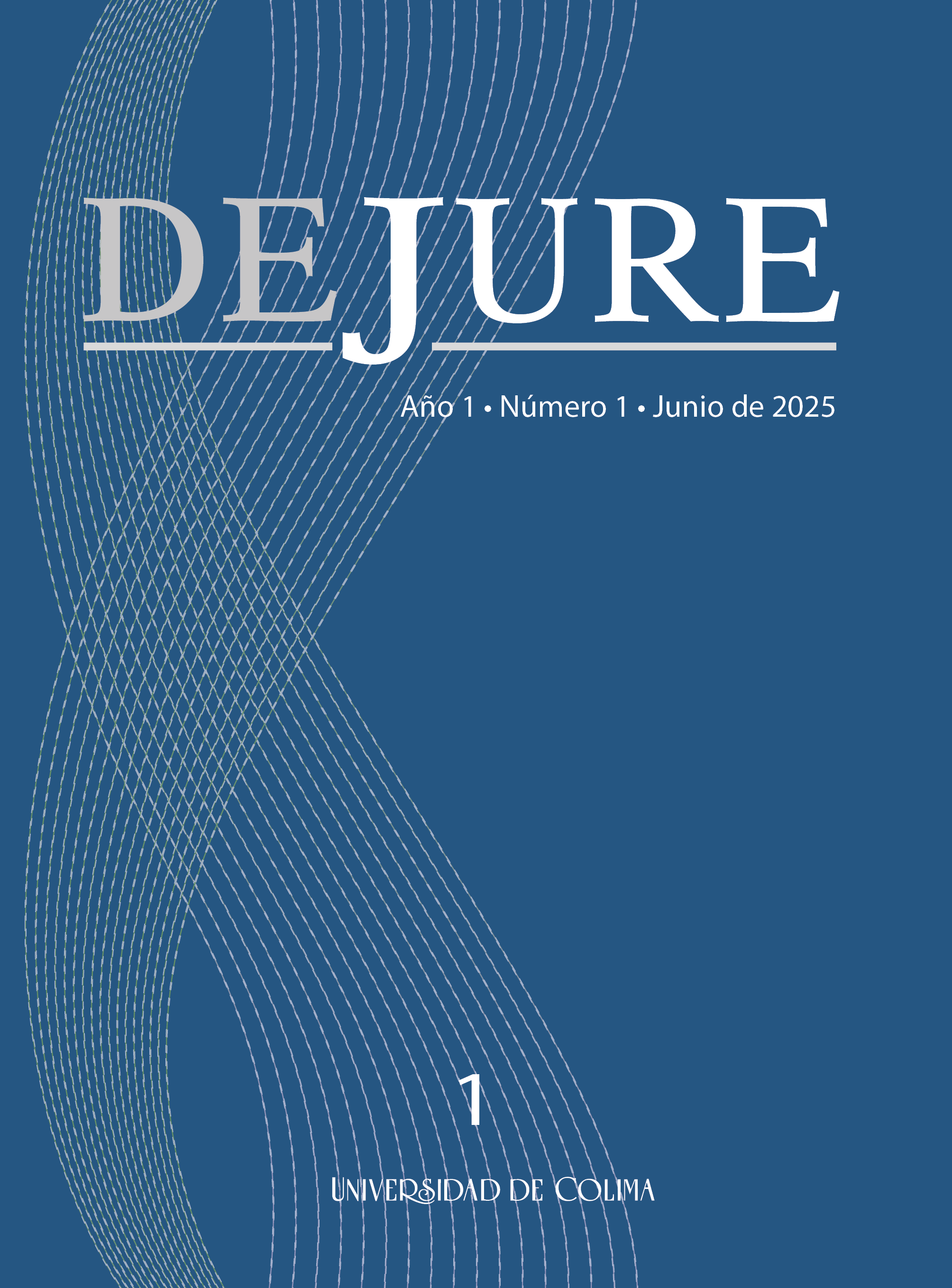Judicial Subordination and Incomplete Reform: Reflections on the Judicial Branch in Mexico
Keywords:
democracy, judiciary, reform, constitution, legitimacyAbstract
Political reforms to the normativity are the seal of each government, and this allows materializing of ideological projects. The factions in power can certainly propose and implement changes or adjustments to the law as part of their positive powers. However, what is the limit of the pretensions of political groups or charismatic leaders. This article analyzes the recent reform of the judiciary emanated from the federal executive in Mexico, and whether it generates a better democracy or demerits the judicial function.
Downloads
References
Ackerman, B. (1980). Social Justice in the Liberal State. Yale University Press.
Águila, R. (2000). Manual de ciencia política. Trotta.
Andrade Geywitz, C. (2002). Elementos de Derecho constitucional chileno. Editorial jurídica de Chile.
Arblaster, A. (1991). Democracia. Nuevo Siglo.
Bobbio, N. (1998). El futuro de la democracia. FCE.
Böckenforde, E. W. (2000). Estudios sobre el estado de derecho y la democracia. Trotta.
Bovero, M. (1997). Los adjetivos de la democracia. IFE.
Burdeau, G. (1970). La democracia. Ariel.
Caballero Juárez, J. A. y Concha Cantú, H. A. (2002). Diagnóstico sobre la administración de Justicia en las entidades federativas. UNAM-IIJ.
Carpizo, J. (2006). Concepto de democracia. México: UNAM.
Castillo González, L. (2006). Reflexiones temáticas sobre derecho electoral. TEPJF.
Código de Ética del Poder Judicial de la Federación [CEPJF]. (2004). Suprema Corte de Justicia de la Nación, Consejo de la Judicatura Federal y Sala Superior del Tribunal Electoral. En: https://www.scjn.gob.mx/sites/default/files/material_didactico/2016-11/codigo-de-etica.pdf
El Financiero. (2024, 3 de septiembre). Reforma al Poder Judicial EN VIVO: Sigue la discusión, votos de la Cámara de Diputados minuto a minuto. https://www.elfinanciero.com.mx/nacional/2024/09/03/reforma-al-poder-judicial-en-vivo-sigue-la-discusion-votos-de-la-camara-de-diputados-minuto-a-minuto/
El País. (2024, 11 de septiembre). Así avanza la aprobación de la reforma judicial en México. https://elpais.com/mexico/2024-09-11/asi-avanza-la-aprobacion-de-la-reforma-judicial-en-mexico.html
Elster, J. (2019). Constitucionalism and democracy. Cambridge University Press.
Fernández Santillán, J. F. (2002). Valores y principios de la justicia electoral. TEPJF.
Fernández Segado, F. (1992). El sistema constitucional español. Dykinson.
Fix-Fierro, H. (2006). Los derechos políticos de los mexicanos. UNAM.
Fix-Zamudio, H. y Cossío Díaz, J. R. (1999). El Poder Judicial en el Ordenamiento Mexicano. FCE.
Galván Rivera, F. (2006). Derecho Procesal Electoral. Porrúa.
García Ramírez, S. (1997). Poder Judicial y Ministerio Público. Porrúa.
Gobierno de México. (2024). Reforma al poder judicial. 12 de febrero de 2024. En: https://www.gob.mx/cms/uploads/attachment/file/892010/REFORMA_AL_PODER_JUDICIAL__2_CS.pdf
Gómez Palacio, I. (2000). Procesos Electorales. Oxford.
Guarnieri, C. y Pederzoli, P. (1999). Los jueces y la política. Taurus.
Held, D. (2006). Models of democracy. Stanford University Press.
Herrendorf, D. E. (1994). El Poder de los Jueces. Abeledo-Perrot.
IFE. (2008). Democracia interna y fiscalización. Instituto Federal Electoral (IFE).
Mackenzie, W. J. M. (1972). Elecciones libres. Tecnos.
Marramao, G. (1989). Poder y secularización. Península.
Nieto, S. (2010). Interpretación y argumentación jurídicas. UNAM.
Nohlen, D. (2003). El contexto hace la diferencia: reformas institucionales y el enfoque histórico-empírico. UNAM.
Nohlen, D. (2008). Sistemas electorales en su contexto. UNAM.
Orozco Henríquez, J. (2006). Justicia electoral y garantismo jurídico. Porrúa. https://doi.org/10.22201/iij.24484881e.2005.13.5741
Ponce de León Armenta, L. (1997). Derecho Político Electoral. Porrúa.
Rawls, J. (2001). Political Liberalism. Columbia University Press.
Shapiro, I. (1999). Democracy’s Value. Cambridge University Press.
Sheldon, C. H. (2001). Essentials of the American Constitution. Westview Press.
Soto Flores, A. (1997). Democracia y Justicia Electoral. Revista Lex: Difusión y Análisis, III(23).
Whitehead, L. (2003). Democratization. Oxford University Press.
Wolfe, C. (1994). The rise of modern judicial review. Littlefield Adams Quality Paperbacks. https://doi.org/10.5771/9781461645467
Published
How to Cite
Issue
Section
Categories
License
Copyright (c) 2025 Danitza Morales Gómez, Carlos Manuel Rosales García

This work is licensed under a Creative Commons Attribution-NonCommercial-ShareAlike 4.0 International License.
De Jure permite distribuir, remezclar, adaptar y crear a partir del material en cualquier medio o formato, únicamente con fines no comerciales y siempre que se le dé crédito al creador. Si remezcla, adapta o crea a partir del material, debe licenciar el material modificado bajo términos idénticos. CC BY-NC-SA, incluyendo los siguientes elementos:
BY: se debe dar crédito al creador.
NC: Solo se permiten usos no comerciales de la obra.
SA: Las adaptaciones deben compartirse bajo los mismos términos.



